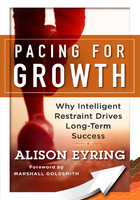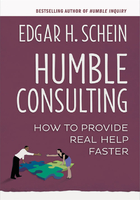In the United States today, we have good reason to be afraid. Our democracy and our freedoms are impaired. Many Americans have lost their homes and jobs and will never get them back. Our pensions and our privacy are also gone. Most frightening of all, the Constitution that protected us for more than two hundred years from the tentacles of oppressive government and the stranglehold of private wealth is less respected every day.
After September 11, 2001, our government told us to fear foreign terrorists, so we did. To protect our national security, we submitted to unreasonable searches without protest; we surrendered our freedom of speech and association. At a staggering cost, we financed a permanent, mercenary military to patrol the world.
In September 2008, when the economy froze, the stock exchanges plunged and private firms began shedding jobs by the hundreds of thousands each week. The Treasury Department stepped in and transferred hundreds of billions of dollars in public assets to failing private financial institutions. The subsequent congressional inquiry determined that we were all responsible. We were guilty of irrational exuberance.
But now, taking stock years later, we have to recognize that no foreign terrorist shredded the Constitution. Nor did we, as citizens, bankrupt the nation. Powerful forces inside the country did. And worse than that: they intend to keep doing it. They have yet to be stopped. This is the real reason to be afraid: the rise of the Corporate Security State.
The Constitution gave us three branches of government to ensure that no one small faction could control the state. Each of them is failing us. The agencies of the executive branch appear to be helpless before the rise of the Corporate Security State. According to the attorney general, the Justice Department cannot prosecute corporations that usurp our rights and rob us of economic security, and the Treasury Department is forced to protect these financial forces from the consequences of their own reckless "trades." The president, whoever he happens to be, releases triumphant photographs of himself saluting in a flight suit or watching a live feed of SEAL Team Six killing Osama Bin Laden. He gives speeches about America and its greatness and periodically runs for re-election in what is now a grotesque pageant of clowns.
The Congress is paralyzed by squabbles over the debt, much of it occasioned by endless, off-the-books warfare. In the fall of 2013, the whole thing shuts itself down, along with the rest of the government, for lack of funding, flounders toward the next political showdown, and finally produces a meaningless agreement with itself about the national budget. Increasingly, the American public despises the entire body, and one poll taken during the 2013 government shutdown showed that we preferred cockroaches, zombies, and dog doo to Congress.
The judiciary, which is the last to go, blesses the increasing intrusion of money in politics, and stands down before the revelations of a secret court operating behind a veil of national security.
The Corporate Security State is tipping the balance between the self-interest of a governing corporate elite and the rights of the rest of us to freedom, privacy, safety, and fairness. We can see the power shift manifest in six clear and evolving trends since 2001:
Average citizens are subject to ever-expanding surveillance by the government-corporate complex.
Intelligence agencies, working with private corporations, gather extensive private data on everyone. Outsourced government has created a complex of private national security contractors who capture approximately 70 percent of the bloated national budget for intelligence and surveillance.
Control of information by the government-corporate complex is expanding.
The Obama administration continues to overclassify information. In 2009 and 2010, the number of classification decisions exploded. Among the documents deemed secret is the one setting out the cost of our national surveillance system and its unconstitutional domestic intelligence gathering capabilities. We are obliged to pay for it, but we have no right to know how much it costs or what it does.
The separation of powers established by the Constitution is eroding. Rights guaranteed by constitutional amendments are becoming irrelevant. Reporting a crime may be a crime, and informing the public of the truth is treason.
Since June 2013, we've discovered that the National Security Agency (NSA) has been routinely violating the First, Fourth, and Fifth Amendment rights of American citizens. The NSA has been doing this secretly for years, while the Justice Department uses the Espionage Act to prosecute national security whistleblowers as traitors when they try expose it.
The government-corporate surveillance complex is consolidating. What has been a confidential but informal collaboration now seeks to legalize its special status.
Legislation permitting the fluid exchange of information about citizens between the national intelligence apparatus and private financial and infrastructural institutions is moving through the Congress.
Financial reforms enacted after the crisis are inoperable and ineffective because of inadequate investigations and intensive corporate lobbying.
The major financial institutions, well-connected to the Congress, the Treasury Department, and the Justice Department, ensure that key regulations implementing reforms are either unfinished or ineffective.
Systemic corruption and a fundamental conflict of interest are driving us toward the precipice of new economic crises.
After the financial cataclysm of September 2008, the Justice Department's refusal to prosecute senior officials of the corporations that failed due to systemic fraud eliminated any deterrent. The deceptive practices continue, and the next collapse is only a matter of time.
The consequences of these trends and conditions are moving us toward a world like the one portrayed in the dismal post-apocalyptic movies churned out by Hollywood. We are submerged in wars that never end, and the wealth produced by and in the United States skews upward in ever greater concentrations. We await the emergence of the world's first trillionaire and look forward to the fawning portrait of him in a glossy business magazine.
Such a country can only be maintained with greater repression of dissent and suppression of the truth. This is why the government is into deeper and broader surveillance. Instead of funding education and health care, clean air, and water, our taxes are paying for intrusive electronic monitoring-of us.
But the battle for equality and fairness is not yet over. Many of the laws that prohibit surveillance and unreasonable search and seizure are still in place. Although they are under attack, and they erode incrementally if we are not paying attention, we still have recourse to them. And they still protect us from domination by a faction-the danger most dreaded by the framers of the Constitution. We must aggressively defend them, and we must promote peace for the United States and the rest of the world. For the war we think we are fighting abroad is also being waged against us. If we deprive others of their rights in an effort to protect ourselves, step-by-step we forfeit our own rights, too. That's just how it works.
No truly sophisticated proponent of repression would be
stupid enough to shatter the facade of democratic institutions.
-Murray B. Levin
Political Hysteria in America:
The Democratic Capacity for Repression















